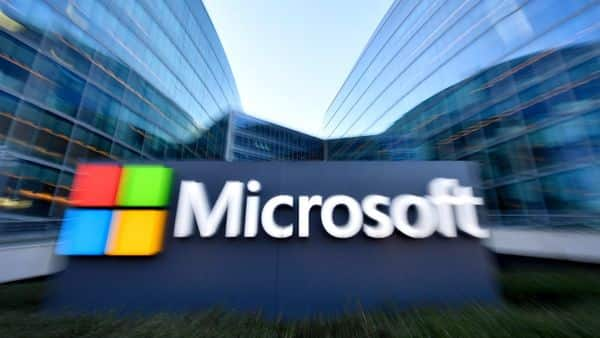[ad_1]
Microsoft Corp. has agreed to acquire speech-recognition firm Nuance Communications Inc. for $16 billion, pushing further into health technology and adding to a series of deals that have widened the range of software tools it offers customers.
The all-cash deal pays $56 per Nuance share, a 23% premium over Friday’s closing price. The companies put its value including debt at $19.7 billion.
The acquisition is Microsoft’s second largest under Chief Executive Satya Nadella. The company spent about $26 billion for professional network LinkedIn Corp. in 2016.
Nuance, based in Burlington, Mass., was a pioneer in speech recognition and artificial intelligence technology. Its software formed the basis of Apple Inc.’s Siri voice assistant before an in-house version was introduced. Nuance was exploring a possible sale as far back as 2014, when Samsung Electronics Co. and private-equity firms were seen as the most likely buyers.
Voice assistants have taken hold as consumers have embraced smart devices around their home. Amazon.com Inc. helped popularize its Alexa voice assistant through its Echo smart speaker, and Alphabet Inc.’s Google offered equipment with its version of a virtual helper, called Google Assistant.
Microsoft has been investing in speech systems for years, though with less success. Last year, the company said it would shift its consumer voice assistant offering, called Cortana, away from trying to compete with Amazon and Google in the consumer market to focus more on supporting the company’s business-focused software tools.
Mr. Nadella said the deal reflects a growing demand for tech applications in healthcare, in particular the use of artificial intelligence “This is projected to be one of the fastest-growing infrastructure software revenue streams in history,” Mr. Nadella said about Nuance’s expertise in clinical documentation.
Nuance has spent years building up its language-processing engine to understand medical terminology, said Gregg Pessin, a senior research director at Gartner Inc.
Mr. Nadella has a record of deal making at Microsoft since taking the helm in 2014. He moved to acquire the owner of the Minecraft videogame Mojang AB within months of becoming chief executive. He followed the LinkedIn acquisition in 2016 with the purchase of code-collaboration site GitHub for $7.5 billion two years later.
Last year, he attempted to acquire parts of popular short-video app TikTok, before talks fell apart. Soon after, Microsoft struck a $7.5 billion deal for videogame maker ZeniMax, the maker of the popular Doom franchise. The company this year has held talks to acquire messaging platform Discord Inc., The Wall Street Journal reported last month.
“Over the past seven years, we’ve taken a consistent approach to mergers and acquisitions of all sizes,” Microsoft finance chief Amy Hood said Monday on a call presenting the Nuance deal.
Nuance has customers in healthcare, finance and other industries, sectors where many companies use Microsoft products. The two companies in 2019 said they would partner around the use of artificial-intelligent assistants for doctor visits. The healthcare product would be built on top of Microsoft’s Azure cloud service, they said at the time.
During the pandemic, as demand for remote healthcare surged, the two companies deepened their ties through the integration of Nuance technology into Microsoft’s Teams workplace-collaboration software suite, Nuance Chief Executive Mark Benjamin said during the investor call. He said Microsoft’s cloud technology will facilitate reaching healthcare customers.
The companies said they expect to the deal to win approval from Nuance shareholders and regulators before year-end.
Microsoft has struck other deals around artificial-intelligence assistants in recent years. In 2018, it acquired Semantic Machines, a startup building conversational AI products.
This story has been published from a wire agency feed without modifications to the text.
[ad_2]






